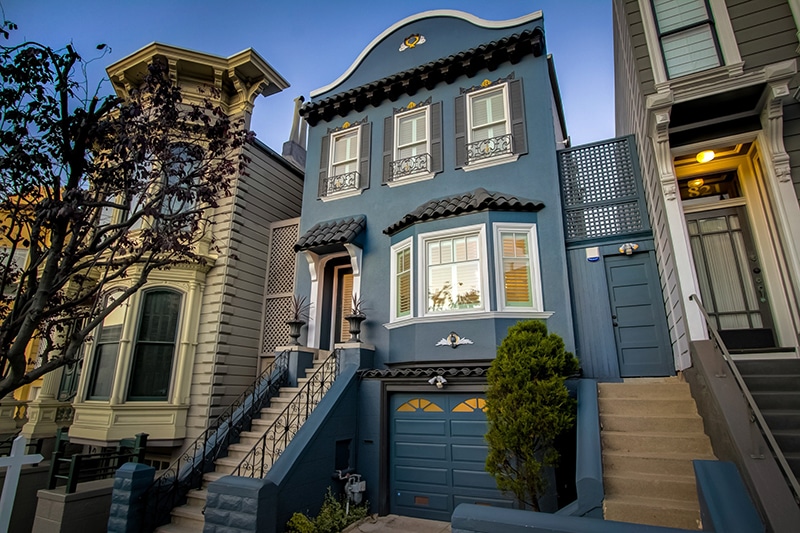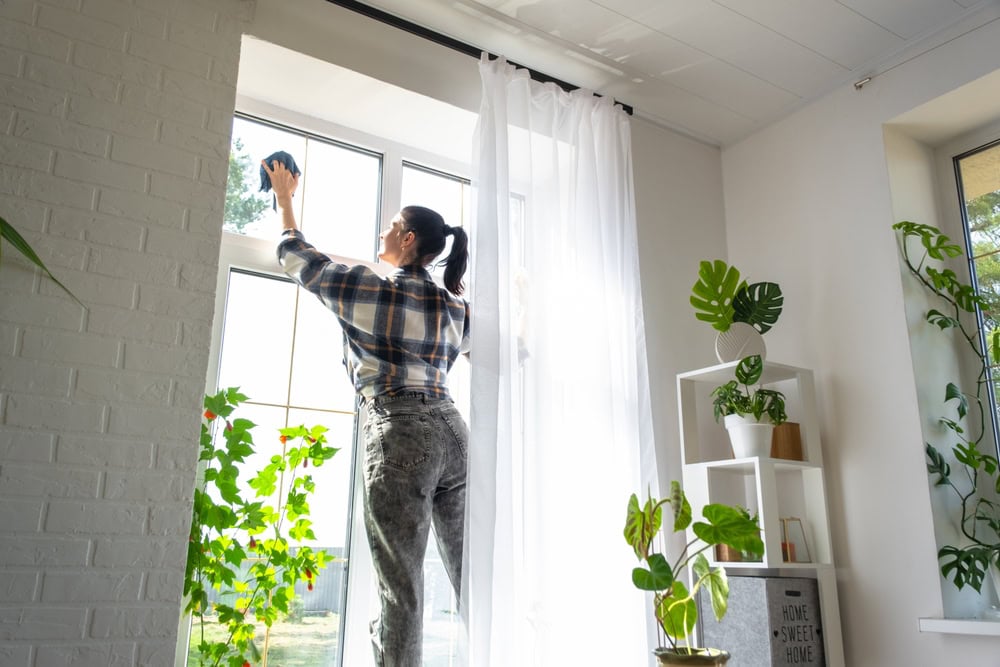When the time comes to move, some tenacious homeowners are eager to take over the reins of their home sale and figure out how to sell a house by owner in West Virginia.
With millions of homes sold each year, a modest portion of sellers — about 6% in 2024 and 5% in 2025 — choose to list “For Sale By Owner” (or FSBO — pronounced fizz-bow).
In this guide to selling FSBO in West Virginia, we’ll cover what can be the most difficult aspects of selling by owner in the Mountain State, including the steps that might be harder than you think. We’ll also provide a comprehensive overview of the full process to prep, market, and close on your home without the assistance of a real estate agent.
Feeling Overwhelmed by the Process of Listing Your Home FSBO in West Virginia?
If you don’t have the time or the expertise to list your home FSBO, working with a top agent in West Virginia could be your best bet. HomeLight analyzes over 27 million transactions and thousands of reviews to find you the best agent for your unique situation.
Note: Once you’ve seen what’s required, you can roll up your sleeves and get started with your FSBO sale. Or — in the event you’d prefer to work with a real estate agent — HomeLight would be happy to introduce you to highly-rated professionals in your West Virginia market who can help you command top dollar and provide a low-stress selling experience.
How does selling by owner (FSBO) work in West Virginia?
FSBO is a method of selling your home without the involvement of a listing agent. In a FSBO scenario, the seller assumes the responsibilities that would normally fall to their agent, such as pricing the home, arranging showings, and negotiating the deal.
In an agent-assisted sale, the seller typically pays a commission amounting to 3%-5.8% of the sale price, depending on who pays for the buyer’s agent commission. That amount is deducted from the seller’s proceeds at closing.
Commission rules and regulations changed after the National Association of Realtors (NAR) announced a landmark lawsuit settlement on March 15, 2024. These changes started in August 2024 and have “decoupled” seller and buyer agent compensation. Buyers are now responsible for paying their own Realtor fees. By selling FSBO, a seller can eliminate the cost of the listing agent commission (around 3%). However, in some markets, sellers are still offering to pay the buyer’s agent commissions.
Even with new commission rules in place, buyers’ agents will expect compensation for the work they do to bring a buyer to the negotiating table, such as arranging showings and helping to place qualified buyers on deck. In addition, when a seller isn’t partnering with an agent, the buyer’s agent may end up lifting more of the weight to get the sale to the finish line.
Next: Consult our guide on who pays closing costs when selling a house by owner for more details.
Finally, a FSBO sale does not mean that a seller won’t need any professional assistance. In West Virginia, all real estate closings (FSBO or not) must be conducted with the guidance and supervision of a licensed attorney — and FSBO sales in particular warrant legal and professional oversight to avoid an abundance of legal risk.
Most people who sell by owner will need to hire an attorney to review and prepare key documents along the way and make sure paperwork is filled out properly, such as the seller’s disclosures. We’ll address what disclosures are required when selling a house in West Virginia later in this post.
3. Photograph your home
Listing photos are powerful, either pulling in buyers for showings or keeping them away.
To give your listing an edge, consider hiring an experienced real estate photographer. While they may charge as much as $123 to $272 an hour, “Good photos could be the reason why someone looks (at your house),” says Raymond. And the more people who tour your home, the more chance you have of increasing demand and, ultimately, the purchase price.
But if you do go the DIY route, make sure to:
- Use a good camera with a wide-angle lens.
- Pay attention to lighting.
- Include a photo of every room.
- Take multiple pictures of living areas, kitchens, and bathrooms.
- Try shooting different angles.
Review our guide on how to take quality real estate photos for further guidance.
4. Create a detailed, compelling listing
Along with stellar photos, you’ll want to craft an informative and compelling listing. Leverage both the listing description (a paragraph or two highlighting key features) and the property details to show potential buyers all about your home and what makes it desirable.
Tell a story with your description
Draw in potential buyers with a powerful listing description that tells a story about your West Virginia house, including details like:
- Your home’s most unique and desirable features, like a breakfast nook or sunroom
- Recent upgrades like a kitchen or bathroom remodel, or a new roof or HVAC system
- High-end appliances, materials, or finishes
- Outdoor features like a pool or patio
- Neighborhood features and amenities
- Nearby parks, walking trails, restaurants, and attractions
- Reasons to come to the state that highlight its lifestyle. Bommarito recommends enticing buyers with language like, “ride your ATV; look at the stars; come to wild, wonderful West Virginia, where mountaineers are always free — things that make people want to come to West Virginia in the first place.”
Don’t skimp on the property details
Aside from writing the description, you may be prompted to enter information like:
- Age of the home
- Square footage
- Architectural style (i.e., split-level, rancher, craftsman)
- Appliances included
- Exterior building materials
- Flooring types
- HOA fees
- School zone information
- Lot size
Many real estate agents and potential buyers really do read this “fine print” on your listing — so include accurate details, and plenty of them.
5. List your home online
It’s finally time to post your West Virginia home online. While you can create FSBO listings for free on popular search sites, you’d have to painstakingly post site by site, and your listing wouldn’t reach the majority of buyers and agents.
To give your home the most exposure, pay to have your home put on your local MLS (multiple listing service) — a platform agents use to share properties with one another as well as major real estate sites. Posting there will feed your listing to buyers’ agent databases and to common sites buyers use.
Only licensed real estate agents and brokers who are MLS members can post to the MLS. However, you have two options to gain access: paying an agent to post for you or using a FSBO platform online.
Pay an agent to list your home on the MLS
A local agent may be willing to list your house on the MLS for a flat fee, without any other involvement in your real estate transaction. If you decide to go this route, make sure you ask whether the fee includes updating your listing if necessary.
Use a FSBO platform with an MLS option
There are a variety of paid websites that you can use to list your West Virginia house online as “for sale by owner.” These sites offer packages ranging from about $100 to $400 for just a listing, or a larger flat fee of $3,000 to $5,000 that includes any number of additional professional marketing services.
Some of these companies display their rates on their websites, but others won’t quote a fee until you input your address or select an area of the country. A few examples include:
- ISoldMyHouse.com
- FSBO.com
- Unreal Estate
- Houwzer
- Clever Real Estate
- Homie Real Estate
- Assist-2-Sell
- Help-U-Sell
It’s important to note that most of these companies serve FSBO sellers nationwide, which can cause challenges if the assisting representatives don’t understand the local market trends in your West Virginia neighborhood.
Whatever you choose, read the fine print carefully: some sites may have hidden fees or even take a percentage off your sale — a detour you’d rather avoid on the FSBO route.
Not willing to pay for the MLS?
If you’re determined to save money by forgoing the MLS, creating a free FSBO listing on Zillow might be your top option. You can post videos and unlimited photos, and get fairly wide exposure via Zillow and the Zillow-owned Trulia.
6. Market your home
Now it’s time to spread the word about your West Virginia home.
Experienced agents like Bommarito and Raymond know that posting a home on the MLS is just the beginning of the marketing phase. A successful home sale requires a deliberate and targeted marketing plan to reach the right buyers and attract the best offers.
“Marketing is key,” says Bommarito, and “I just don’t think that the average person can come anywhere close to giving a level of marketing a good professional real estate agent could do.” For example, Bommarito uses professional photographers and professional social media experts for his listings, which the average seller may not have the resources or knowledge to employ.
However, we’ve curated a few key suggestions for marketing your home:
Place a nice FSBO sign by the road
Consider getting a custom yard sign rather than purchasing a generic one you write on with a Sharpie. You can order a custom sign on a site like Vistaprint with your contact information, plus a stand, for as little as $25 plus shipping. Note that some MLS providers may have rules about whether you can post a FSBO yard sign while your home is on the MLS.
Share on social media
Share your home across social media — and ask your friends to share, too.
Raymond says, “Social media marketing is great here. I always tell everyone, put it on every local buy, sell, and trade site. I know as an agent, I get a lot of buyers from there and a lot of calls from my listings.”
Raymond recommends starting with Facebook Marketplace and then sharing your listing in your local Facebook buy, sell, and trade groups after that.
Hold an open house
Try these strategies for a successful open house event:
- Share details on Facebook and Nextdoor.
- Update your MLS listing with the open house details (if you’re able to as part of paying the flat fee), or update your DIY FSBO listing.
- Place open house signs at nearby intersections.
- Tidy up the house before potential buyers come through.
- Pass out info sheets with the address, bullet points about the house, your contact info, and perhaps one photo.
- If you can, collect visitors’ info — then follow up later to ask if they have any questions.
Find more expert tips for how to hold an open house at this link.
7. Manage showings
If your marketing is successful, your next step will be to show the home to prospective buyers. Welcome to the busiest phase of the home sale process. In fact, a major reason some FSBO sellers switch to an agent is that they underestimated the time, energy, and expertise needed to manage this crucial step.
“You can’t sell it if people aren’t seeing it,” says Raymond, so showings are a critical stage.
To manage the logistics of showings:
- Respond to inquiries ASAP.
- Set end times if you need to fit many showings in one day. This will also create a sense of demand and urgency for buyers to place offers.
- Remove or secure valuables.
- Make sure the home is clean and tidy for showings.
- For your own protection, if you’re working with an unrepresented buyer, Raymond recommends requesting a copy of the prospective buyer’s ID before the showing. That way, if a person requesting a showing had ill intentions — casing your home for a robbery, for example — they’re not likely to send the ID or come to the house.
- Follow up with buyers’ agents after showings to get their feedback.
Lastly, according to Bommarito, “FSBOs are getting a lot of tire kickers, a lot of people that are dreamers,” so you want to vet potential buyers before scheduling showings. To do so, you can ask for a prequalification letter or, Bommarito suggests, “Get with your local lender who is offering mortgages, and just ask your local lender if they would mind qualifying people for you — which they may do, because they may end up getting a loan on it.”
Should you be present for showings?
If you’d rather not be present for every showing, consider using a lockbox with a code to let buyers’ agents enter the house. This is standard industry practice among agents. To ensure you’re working with someone legitimate, use Google or sites like arello.com to check their real estate license number.
With unrepresented buyers, plan to be on the property for the showing. During a showing, we recommend you:
- Point out a few highlights of the house.
- Let buyers look without hovering.
- Be prepared to answer questions.
- Avoid the temptation to tell all — let the house and listing do the talking.
8. Evaluate offers, negotiate a deal, and make disclosures
Before signing anything, you’ll need to do your due diligence to evaluate the terms of the offer and assess whether the buyer’s financing looks satisfactory.
Here are key considerations when considering an offer on your West Virginia home:
- Vet potential buyers by requiring a mortgage pre-approval letter (if you haven’t already) or proof of funds.
- Require everything in writing.
- Remember, you can always counter-offer and negotiate.
- Look for a good real estate attorney. (See the next step!)
Property condition disclosure
West Virginia is what’s called a “caveat emptor” state, meaning “buyer beware.” This puts the onus on a home buyer to find out if a property has any major defects before purchasing it, and means that a residential seller is not generally required to disclose the condition of the home to the buyer.
This does not necessarily give the seller a free pass, however. If a seller actively attempts to hide problems with a property, overtly lies about the property’s condition, or significantly misrepresents the home, they may find themselves in legal trouble.
According to Raymond, “Buyers always prefer the sellers to fill out disclosures but it could open the sellers up to lawsuits. Sellers are required to disclose any material or latent (hidden) defects, however. If the property is a rental or an estate, it is always recommended sellers do not fill out disclosures since they have not physically occupied the property.”
In an agent-assisted sale, typically your listing agent would provide you with an optional disclosure form if you need or want one. However, as a FSBO seller, you can still access the West Virginia Association of Realtors® (WVAR) form online.
What will you be asked? The optional WVAR form includes questions about things like:
- Water supply
- Sewage
- Heating and cooling
- Issues with foundation, basement, cellar, or crawlspace
- Roof condition, type, and age
- Plumbing and electrical systems
- Drainage
- Pests
- Hazardous conditions
- Illegal drug or criminal activity
- Other disclosures (foundation problems, land use, encroachments, zoning or code violations, etc.)
If you’ve opted for the disclosure route, and you’re in doubt about a problem with the home’s condition, most top real estate agents would recommend you disclose it. If you know of an issue and choose not to disclose a major problem, and that defect is later discovered, you could be held liable for damage or subsequent costs.
9. Close the sale — with professional help
Some states require attorneys to be present to close home sales, while some do not. According to Bommarito, “In West Virginia, we close with attorneys, not title companies.” So, even without an agent representing you in your home sale, you can still expect to involve a professional at this point (if you haven’t already).
Who hires the attorney? “Usually,” Bommarito adds, “it’s a collaboration between the buyer and the seller. What I try to do, if there are no objections, is to get one attorney to close both sides because it’s just easier that way, and that’s allowed in West Virginia.”
Regardless, it’s always a good idea to invest in the services of an experienced attorney as you close one of the biggest and most complex deals of your life. By doing so, you’ll minimize your legal and financial risk, plus simplify the process for yourself.
Real estate attorney fees can vary depending on location and how much help you want or need. In West Virginia, one estimate puts them at an average of $196 per hour — well worth it for professional guidance in closing one of life’s largest legal transactions.
FSBO mistakes to avoid in West Virginia
On your FSBO journey, watch out for these major pitfalls:
- Missing out on the MLS.
- Over- or under-pricing. Bommarito explains one reason for this: “Mostly they (FSBO sellers) just don’t have very good things to compare (their homes) to, because they really can’t pull comps and things like we can do as agents. And a lot of times the people really either wildly underprice or wildly overprice them.”
- Letting your house sit on the market too long.
- Failing to prequalify buyers.
- Overlooking issues an appraiser would look for — especially for government-backed loans common in West Virginia, like USDA, FHA, and VA.
- Working with a buyer whose bank is short on appraisers, which can really slow down a deal. Raymond says that a good local agent will know which trusted banks have appraisers ready to help move your home sale along.
Lastly, beware of getting personally involved in a transaction. Raymond cautions that when FSBO sellers strike a deal with someone they know, “They think they’re giving their friend, their brother, their uncle, a discount, and they’re just losing money in the end.”
Request a Cash Offer on Your West Virginia Home and Skip the Prep Work
Skip the prep work and the agent commissions by requesting a cash offer for your home. With HomeLight’s Simple Sale, you can receive a no-obligation all-cash offer in 24 hours, and close the sale in as few as 10 days.
Alternatives to selling by owner in West Virginia
If you decide you don’t want the hassle or pressure of FSBO, you’ve got other solid options.
Enlist the help of a top-rated real estate agent
Ultimately, the services and price gains you can get with an experienced real estate agent may put more money in your pocket than FSBO. A proven agent is also better equipped to help you achieve your selling and moving timelines.
Raymond tells a story of a FSBO seller in Weirton who reached out to him because, although they had a buyer lined up, they couldn’t close the sale of their home: “They were under contract with Quicken Loans (as the buyer’s lender) and three weeks — well, about four weeks into the sale — Quicken Loans couldn’t get an appraiser to work with them.” The seller was ready to terminate the contract in order to find another buyer. However, Raymond helped both the seller and the buyer by connecting them with a trusted lender who could close on the home in 30 days — a happy ending for all.
Bommarito shares his own experience when he reached out to a FSBO seller in Mount Storm. She was struggling to understand what it would take to complete a FSBO sale, he remembers — and not only that, but his market knowledge told him she’d also priced her house too low, at $215,000.
After teaming up with Bommarito and listing the house for $229,900, it sold for $240,000. “And by the time she paid the commission and everything else,” recalls Bommarito, “she walked away with $222,000, so she actually made $7,000 more by using an agent than she would’ve if she had stuck to her course and sold the place for $215,000 by herself.”
Interested in such expertise? HomeLight can connect you to top-performing agents in your West Virginia market. Our free tool analyzes over 27 million transactions and thousands of reviews to determine which agent is best for you based on your needs. It takes only two minutes to receive your matches.
Request a cash offer to buy your West Virginia home
If you’d like to skip the sale prep altogether — plus avoid paying agent commissions — you can opt to sell your home as-is to an all-cash buyer instead.
For a low-stress experience, consider requesting a cash offer from HomeLight’s Simple Sale platform. Tell us a few details about your home, and in as few as 24 hours, we’ll send a no-obligation all-cash offer your way. If you decide to accept the offer, Simple Sale sellers have the ability to close in as little as 7 days.
Without leaving the Simple Sale platform, you’ll also be able to compare your cash offer to an estimation of what your home would sell for on the open market so you can make an informed decision.
Ready to sell your West Virginia home?
Unless you already have a buyer lined up, selling a house by owner in West Virginia requires a significant investment of time and effort. You’ll need to pull your own comps, capture excellent pictures, create a listing, market the house online, field inquiries, host showings, negotiate, and close the deal. And that’s after preparing the house itself.
You also have to consider that FSBO listings tend to sell for less than agent-assisted sales. An experienced agent who knows the area can make recommendations for targeted upgrades to help you maximize your sale price and get a premium offer. This can help to offset or, in some cases, more than make up for the cost of commission — while saving you time and headaches.
If you choose to go FSBO, you should have a good idea now of what to expect from the process. Otherwise, HomeLight would be happy to introduce you to some of the best agents in your West Virginia market.
Editor’s note: This blog post is for educational purposes only. HomeLight recommends that you look into the real estate regulations for your area and consult a trusted advisor.
Header Image Source: (sepavone / DepositPhotos)



















 English (US) ·
English (US) ·